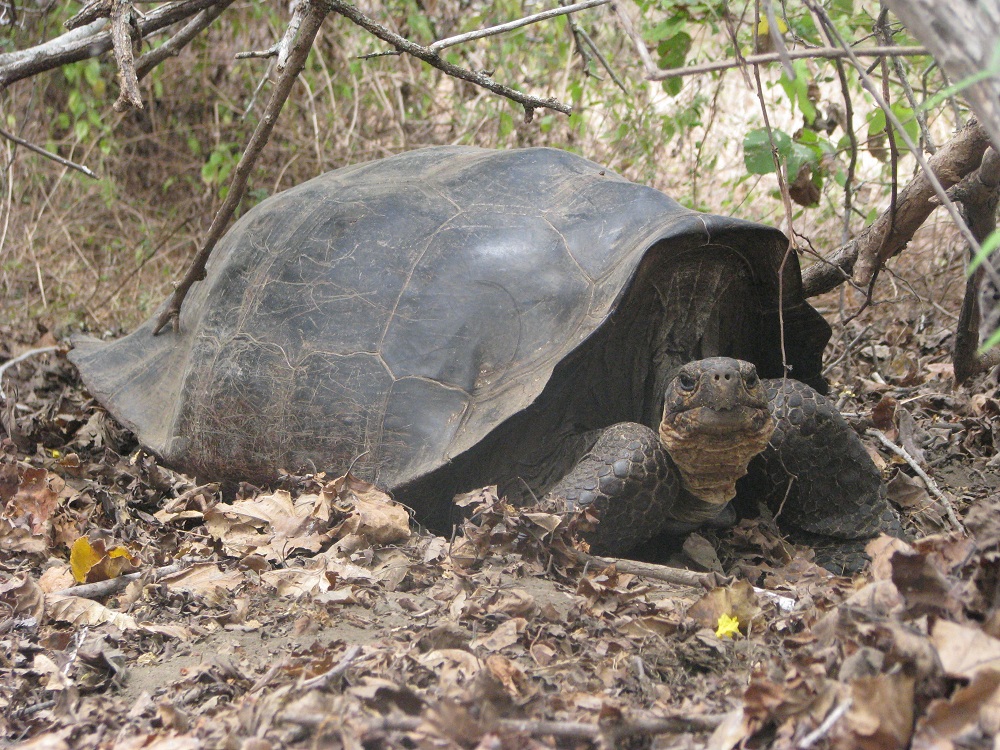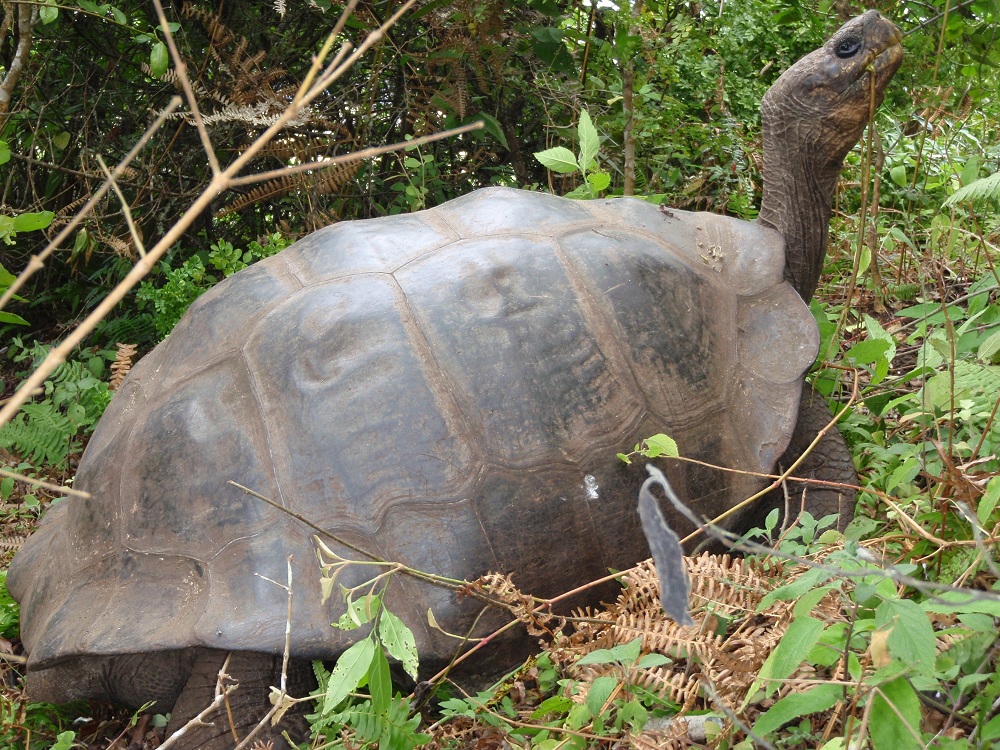
'Extinct' Galapagos Tortoise Reappears

Get the world’s most fascinating discoveries delivered straight to your inbox.
You are now subscribed
Your newsletter sign-up was successful
Want to add more newsletters?

Delivered Daily
Daily Newsletter
Sign up for the latest discoveries, groundbreaking research and fascinating breakthroughs that impact you and the wider world direct to your inbox.

Once a week
Life's Little Mysteries
Feed your curiosity with an exclusive mystery every week, solved with science and delivered direct to your inbox before it's seen anywhere else.

Once a week
How It Works
Sign up to our free science & technology newsletter for your weekly fix of fascinating articles, quick quizzes, amazing images, and more

Delivered daily
Space.com Newsletter
Breaking space news, the latest updates on rocket launches, skywatching events and more!

Once a month
Watch This Space
Sign up to our monthly entertainment newsletter to keep up with all our coverage of the latest sci-fi and space movies, tv shows, games and books.

Once a week
Night Sky This Week
Discover this week's must-see night sky events, moon phases, and stunning astrophotos. Sign up for our skywatching newsletter and explore the universe with us!
Join the club
Get full access to premium articles, exclusive features and a growing list of member rewards.
After 150 years of being "extinct," a species of giant tortoise may be on the verge of a comeback tour, scientists report today (Jan. 9).
The researchers "found" the lost species, called Chelonoidis elephantopus, by analyzing the genome of a closely related species, Chelonoidis becki, which lives on Isabela Island, the largest of the Galápagos Islands in the Pacific Ocean. The island lies about 200 miles (322 kilometers) from Floreana Island, where C. elephantopus was last spotted before disappearing, likely due to hunting by whalers, some 150 years ago.
The two species of gigantic tortoise, both living in the Galápagos Islands (famously studied by Charles Darwin), have different shaped shells. The shells of C. elephantopus on Floreana Island were saddle-shaped while tortoises on other islands, including C. becki, had domed-shaped shells. These giant tortoises can weigh nearly 900 pounds (408 kilograms) and reach almost 6 feet(1.8 meters) in length.
Finding hybrids
The researchers noticed in 2008 that some of the C. becki shells were more saddle shaped than domed shaped, and found that these were hybrid offspring from matings between the two species. They took samples for genetic analyses from 1,669 of the large tortoises on the island, about 20 percent of their population.
They found some snippets of the C. elephantopus genome in the population, and using a special computer model they analyzed how recently these genes would have entered the population. This would have happened when a living C. elephantopus mated with a C. becki — and is indirect proof that at that time living C. elephantopus existed.
They found that 84 of the tortoises had genetic indicators that one of their parents was a C. elephantopus, 30 of which were less than 15 years of age. Given the 100-year lifespan of the tortoises the researchers say there is a good chance that their C. elephantopus parent would still be alive.
Get the world’s most fascinating discoveries delivered straight to your inbox.
"To our knowledge, this is the first report of the rediscovery of a species by way of tracking the genetic footprints left in the genomes of its hybrid offspring," study researcher Ryan Garrick, who performed the work at Yale University, but is now assistant professor at the University of Mississippi, said in a statement. "These findings breathe new life into the conservation prospects for members of this flagship group."
Because of genetic differences between the hybrid tortoises, the researchers estimate that at least 38 C. elephantopus left behind hybrid descendants on the Galápagos Islands, and many may still be alive.
Planning a comeback tour
If the researchers can find this hidden population, they could capture individuals to set up a breeding program to regenerate the species, the authors write in the paper published Jan. 9 in the journal Current Biology. They could even try to resuscitate the species from the genetic snippets found in C. becki.
"This is not just an academic exercise," study researcher Gisella Caccone, of Yale University, said in a statement. "If we can find these individuals, we can restore them to their island of origin. This is important as these animals are keystone species playing a crucial role in maintaining the ecological integrity of the island communities."
In an interesting twist, the researchers aren't sure how the giant tortoises would have gotten from Floreana Island to Isabela — they suggest the animals may have been brought to Isabela as food and then either thrown overboard or left on the shore.
You can follow LiveScience staff writer Jennifer Welsh on Twitter @microbelover. Follow LiveScience for the latest in science news and discoveries on Twitter @livescience and on Facebook.
Jennifer Welsh is a Connecticut-based science writer and editor and a regular contributor to Live Science. She also has several years of bench work in cancer research and anti-viral drug discovery under her belt. She has previously written for Science News, VerywellHealth, The Scientist, Discover Magazine, WIRED Science, and Business Insider.
 Live Science Plus
Live Science Plus












